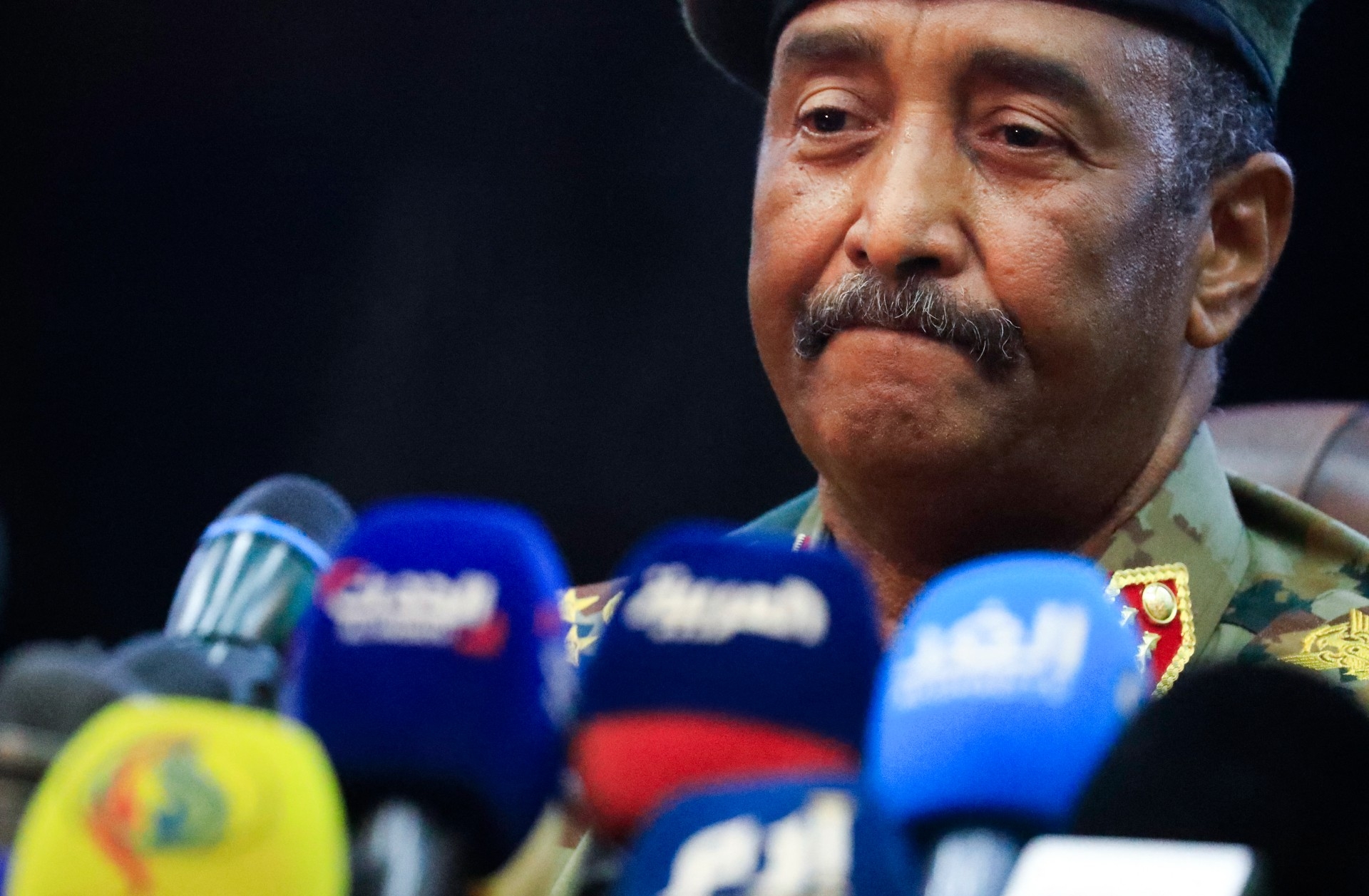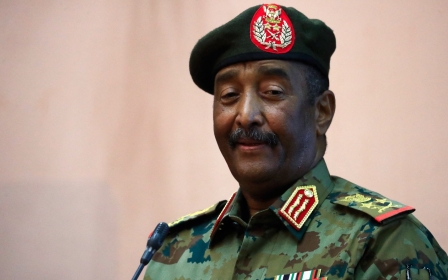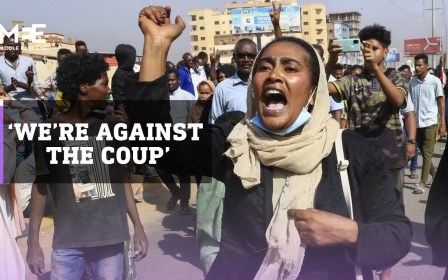Israel thinks Burhan’s coup is a chance for closer Sudan ties - but it will have to wait

The first, instinctive reaction in the Israeli security and diplomatic establishment to the military coup in Sudan is of satisfaction.
Since 2019, General Abdel Fattah al-Burhan and his senior officers have shared power with civil society through a military-civilian transitional body. Burhan himself was chairman of the Sovereignty Council, until he dissolved it earlier this week.
This unique power sharing was a result of the revolution that two years ago toppled dictator and alleged war criminal Omar al-Bashir. Burhan promised to lead Sudan to democracy. He still does, but many observers doubt he means it.
During the interim government, Burhan hoped to follow in the footsteps of the United Arab Emirates, Bahrain and Morocco, which recently signed normalisation treaties with Israel and got a tail wind from the Trump administration as a result.
The former US president pushed Sudan to follow suit while he was still in power. The UAE promised financial support and the US agreed to lift the sanctions imposed on Khartoum under the brutal regime of Bashir.
Burhan was very enthusiastic and receptive to this scheme. Yossi Cohen, at that time the chief of Mossad, met with the generals and intelligence chiefs and promised to help them with know-how, technology and equipment.
In February 2020, Israel’s then-prime minister Benjamin Netanyahu flew to Kampala, met with Burhan under the auspices of Ugandan President Yoweri Museveni and promised him the sky.
But Burhan was restrained by the political parties, trade unions and left-wing circles led by Prime Minister Abdalla Hamdok, which had misgivings about relations with Israel. Burhan, who had domestic problems with his civilian opponents, had to take into consideration the opposing voices against Israel. Eventually a compromise was struck.
On 23 October 2020, Israel and Sudan announced the establishment of formal bilateral ties for the first time, making Sudan the sixth Arab country, after Egypt, Jordan, the UAE, Bahrain, and Morocco, to fully recognise the state of Israel. But a treaty was not signed, and diplomatic relations were not formed. Yet, from the Sudanese point of view, the sheer fact of recognising Israel was a breakthrough.
A fragile situation
Since 1958, Sudan has had a law that forbids relations with Israel. This outlawed business with Israelis as well as business relationships with Israeli companies or companies with Israeli interests. The law also forbade the direct or indirect import of any Israeli goods.
Not that the law prevented Sudanese leaders, state officials and especially intelligence and military officers maintaining secret ties with their Israeli counterparts. Clandestine cooperation in the late 70s and 80s, which enabled Israel to lift Ethiopian Jews from refugee camps in Sudan and smuggle them to Israel, was just one example of such ties.
The Sudanese leader at that time, Jaafar Nimeiri, and his security chief Abu Taib turned a blind eye in return for bribes of $30m, which they deposited in secret bank accounts abroad.
Now Burhan has rid himself of the civilian elements and established a military government, and he can move forward with his old plans to establish relations with Israel. Whether he will do it or not is in doubt, however.
As he needs to deal with the fragility of the situation and suppress widespread unrest and protest, Burhan has more urgent matters to deal with than to walk with open eyes into the Israeli minefield.
The Israeli government knows this very well. Sudan's military, which remains sympathetic to Israel, will have to wait for a more appropriate time. Israeli hopes are diminishing because the administration of US President Joe Biden has already denounced the coup and threatened to withhold financial aid amounting to $700m.
Thus, Israel is trapped in a catch-22. situation. A military government that wants to form ties with Israel cannot deliver. On the other hand, if Sudan has a civilian democratic and free government, the chances of having peace with Israel are very slim.
This article is available in French on Middle East Eye French edition.
Middle East Eye delivers independent and unrivalled coverage and analysis of the Middle East, North Africa and beyond. To learn more about republishing this content and the associated fees, please fill out this form. More about MEE can be found here.






